Theory Test Training
Collision Regulations (ColRegs)
This section illustrates several situations where two vessels may be at risk of collision. There is no such thing as ‘Right of way’ in the sailing world. Instead the terms ‘Stand on’ boat or ‘Give way’ boat are used.
The illustration and text will state which boat is the ‘Stand on’ boat and which is the ‘Give way’ boat. The arrow at the top of the image represents the wind direction. Wavy lines streaming out of the back of the boat signify a motor propelled vessel - not a sailing vessel. All other vessels indicated in the images are sailing vessels. The curved lines represent sails. Again we’ve made the visuals simple, similar to how they will appear on your exam.
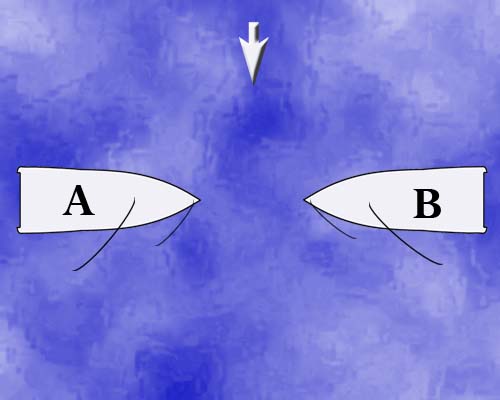
Boat A is stand on boat, Boat B gives way. Boat on a starboard tack has priority over boat on a port tack.
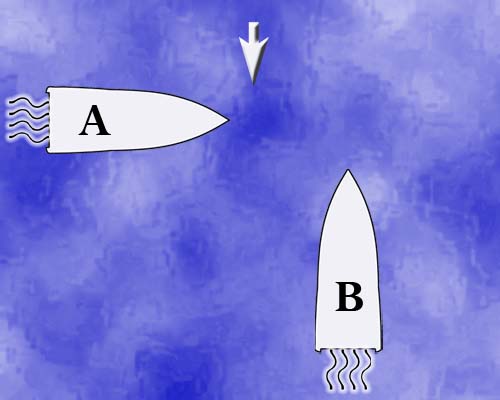
Boat B Is the stand on boat, Boat A gives way. Motor boat who has another boat to its starboard, must give way, stop, slow down or dramatically alter course.
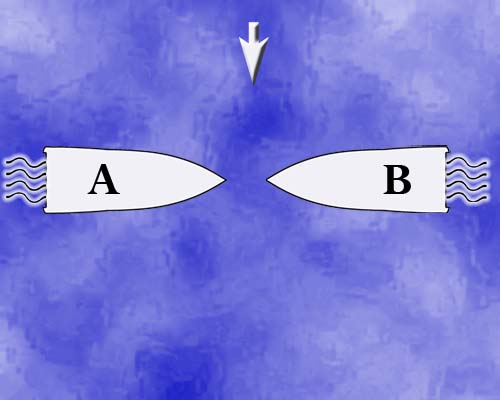
Both boats must give way, both boats should turn to starboard. Motor vessels facing head on must both alter course to avoid collision.
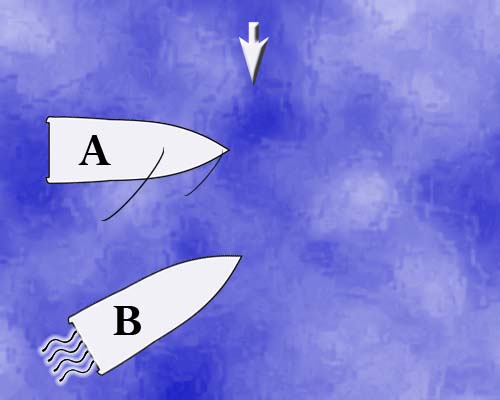
Boat A stands on, Boat B must give way. Motor vessels must give way to sailing boats as they can manoeuvre better.
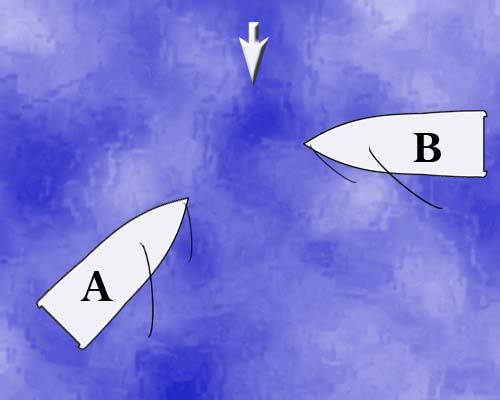
Boat A stands on, Boat B gives way. Boat on a starboard tack has priority over boat on a port tack.
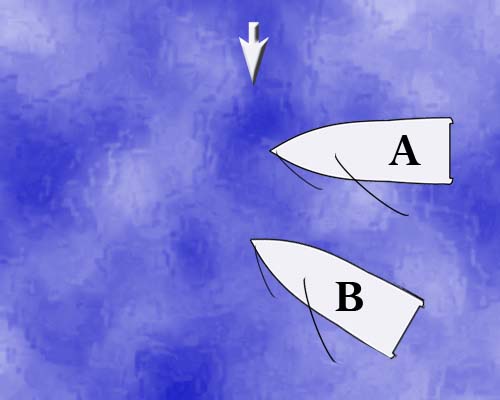
Boat B stands on, Boat A gives way. Windward boat gives way when both boats are on the same tack.
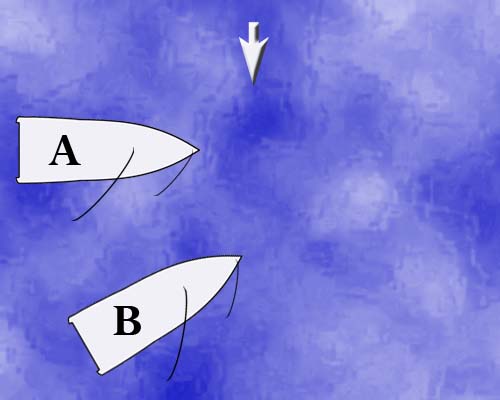
Boat B stands on, Boat A gives way. Windward boat gives way when both boats are on the same tack.